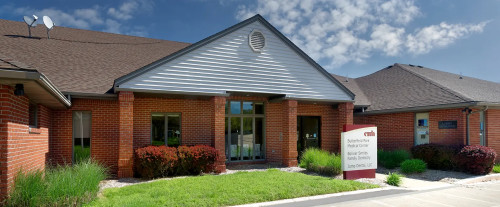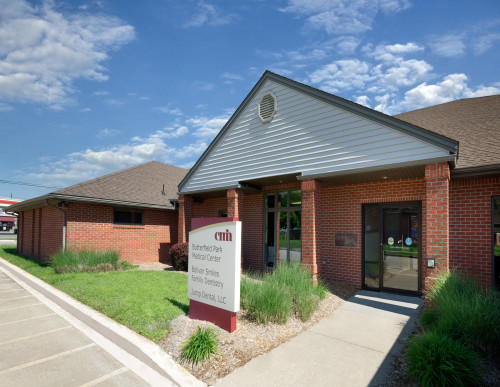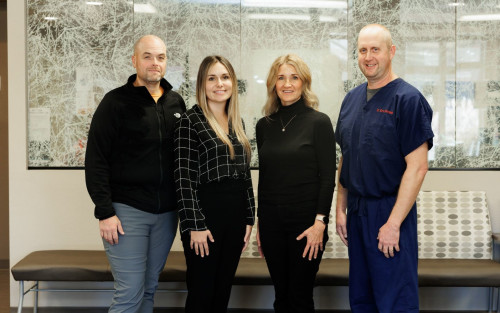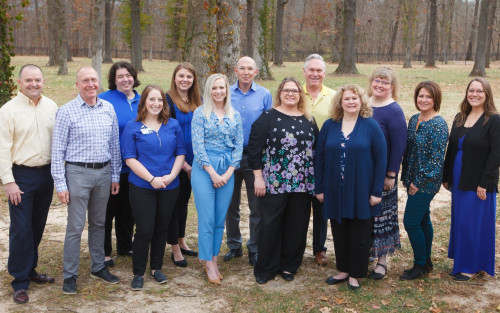






Citizens Memorial Hospital
Treatment Focus
You can admit to this center with a primary substance use disorder or a primary mental health condition. You'll receive support each step of the way and individualized care catered to your unique situation and diagnosis.
Primary Level of Care
Provides 24/7 medical supervision and intensive treatment in a clinical setting for individuals in crisis or with acute needs, focusing on stabilization and immediate safety
This provider hasn't verified their profile's information. Are you the owner of this center? Claim your listing to better manage your presence on Recovery.com.
Treatment Focus
You can admit to this center with a primary substance use disorder or a primary mental health condition. You'll receive support each step of the way and individualized care catered to your unique situation and diagnosis.
Primary Level of Care
Provides 24/7 medical supervision and intensive treatment in a clinical setting for individuals in crisis or with acute needs, focusing on stabilization and immediate safety
Provider's Policy
Most major insurance plans are accepted, and financial assistance is available. You should contact your insurance company directly to confirm eligibility and benefits. Patients are responsible for co-pays, co-insurance or deductibles. CMH accepts cash, check or credit card.
Citizens Memorial Hospital
Citizens Memorial Hospital
About Citizens Memorial Hospital
Set in southwest Missouri, Citizens Memorial Hospital cares for children 6+, adolescents, adults, and older adults 50+ with mental health or substance disorders, as well as clients with other healthcare needs. These programs are outpatient services.
Age-Appropriate Mental and Physical Health Care
Their medical team of physicians, psychiatrists, psychologists, counselors and licensed clinical social workers considers mind and body health simultaneously. For students, they can also work with school counselors to ensure that students get the assistance they need while continuing with their academic career. For older adults, they can address Alzheimer's, dementia, and other cognitive disorders that affect clients' well-being.
Their approach combines evidence-based talk therapy with medical treatments. Therapies like cognitive behavioral therapy (CBT) help people manage emotions, change harmful thoughts, and improve relationships. Meanwhile, their medication-assisted treatments (MAT) for drug addiction using Suboxone, Vivitrol, or Sublocade reduce cravings, making it easier for clients to focus on the psychological and interpersonal aspects of addiction.
In-Person and Online Care Access
The Bolivar Family Care Center building includes their mental health treatment, while their nearby Butterfield Park Medical Center includes both mental health and substance use treatment. These services are available weekdays from 8 a.m. to 5 p.m., and their walk-in treatment at the Bolivar building runs from 8 a.m. to 4 p.m.
Clients can also access their care notes and bills through their proprietary patient portal.
Set in southwest Missouri, Citizens Memorial Hospital cares for children 6+, adolescents, adults, and older adults 50+ with mental health or substance disorders, as well as clients with other healthcare needs. These programs are outpatient services.
Age-Appropriate Mental and Physical Health Care
Their medical team of physicians, psychiatrists, psychologists, counselors and licensed clinical social workers considers mind and body health simultaneously. For students, they can also work with school counselors to ensure that students get the assistance they need while continuing with their academic career. For older adults, they can address Alzheimer's, dementia, other cognitive disorders, and pains that affect clients' well-being.
Their approach combines evidence-based talk therapy with medical treatments. Therapies like cognitive behavioral therapy (CBT) help people manage emotions, change harmful thoughts, and improve relationships. Meanwhile, their medication-assisted treatments (MAT) for drug addiction using Suboxone, Vivitrol, or Sublocade reduce cravings, making it easier for clients to focus on the psychological and interpersonal aspects of addiction.
In-Person and Online Care Access
The Bolivar Family Care Center building includes their mental health treatment, while their nearby Butterfield Park Medical Center includes both mental health and substance use treatment. These services are available weekdays from 8 a.m. to 5 p.m., and their walk-in treatment at the Bolivar building runs from 8 a.m. to 4 p.m.
Clients can also access their care notes and bills through their proprietary patient portal.

Center Overview
Treatment Focus
You can admit to this center with a primary substance use disorder or a primary mental health condition. You'll receive support each step of the way and individualized care catered to your unique situation and diagnosis.
Joint Commission Accredited
The Joint Commission accreditation is a voluntary, objective process that evaluates and accredits healthcare organizations (like treatment centers) based on performance standards designed to improve quality and safety for patients. To be accredited means the treatment center has been found to meet the Commission's standards for quality and safety in patient care.

Insurance Accepted
Cash Pay Rates
Estimated Cash Pay Rate
Center pricing can vary based on program and length of stay. Contact the center for more information. Recovery.com strives for price transparency so you can make an informed decision.
Levels of Care






Treatment
Specializations
Older Adults
Addiction and mental health treatment caters to adults 55+ and the age-specific challenges that can come with recovery, wellness, and overall happiness.
Children
Treatment for children incorporates the psychiatric care they need and education, often led by on-site teachers to keep children on track with school.
Licensed Primary Mental Health
Some primary care providers offer mental health diagnosis and treatment. This can prevent patients from developing more serious conditions.
Medical
Medical addiction treatment uses approved medications to manage withdrawals and cravings, and to treat contributing mental health conditions.
Medication-Assisted Treatment
Combined with behavioral therapy, prescribed medications can enhance treatment by relieving withdrawal symptoms and focus patients on their recovery.
Who We Treat
Older Adults
Addiction and mental health treatment caters to adults 55+ and the age-specific challenges that can come with recovery, wellness, and overall happiness.
Adolescents
Teens receive the treatment they need for mental health disorders and addiction, with the added support of educational and vocational services.
Children
Treatment for children incorporates the psychiatric care they need and education, often led by on-site teachers to keep children on track with school.
Men and Women
Men and women attend treatment for addiction in a co-ed setting, going to therapy groups together to share experiences, struggles, and successes.
Approaches
Evidence-Based
A combination of scientifically rooted therapies and treatments make up evidence-based care, defined by their measured and proven results.
Individual Treatment
Individual care meets the needs of each patient, using personalized treatment to provide them the most relevant care and greatest chance of success.
Medical
Medical addiction treatment uses approved medications to manage withdrawals and cravings, and to treat contributing mental health conditions.
Therapies
1-on-1 Counseling
Patient and therapist meet 1-on-1 to work through difficult emotions and behavioral challenges in a personal, private setting.
Family Therapy
Family therapy addresses group dynamics within a family system, with a focus on improving communication and interrupting unhealthy relationship patterns.
Life Skills
Teaching life skills like cooking, cleaning, clear communication, and even basic math provides a strong foundation for continued recovery.
Medication-Assisted Treatment
Combined with behavioral therapy, prescribed medications can enhance treatment by relieving withdrawal symptoms and focus patients on their recovery.
Conditions We Treat
Grief and Loss
Grief is a natural reaction to loss, but severe grief can interfere with your ability to function. You can get treatment for this condition.
ADHD, ADD
ADHD is a common mental health condition caused by dopamine imbalance. Common symptoms include inattention, hyperactivitiy, and impulsivity.
Anger
Although anger itself isn't a disorder, it can get out of hand. If this feeling interferes with your relationships and daily functioning, treatment can help.
Anxiety
Anxiety is a common mental health condition that can include excessive worry, panic attacks, physical tension, and increased blood pressure.
Depression
Symptoms of depression may include fatigue, a sense of numbness, and loss of interest in activities. This condition can range from mild to severe.
Self-Harm
The act of intentionally harming oneself, also called self-injury, is associated with mental health issues like depression.
Suicidality
With suicidality, a person fantasizes about suicide, or makes a plan to carry it out. This is a serious mental health symptom.
Substances We Treat
Alcohol
Using alcohol as a coping mechanism, or drinking excessively throughout the week, signals an alcohol use disorder.
Co-Occurring Disorders
A person with multiple mental health diagnoses, such as addiction and depression, has co-occurring disorders also called dual diagnosis.
Drug Addiction
Drug addiction is the excessive and repetitive use of substances, despite harmful consequences to a person's life, health, and relationships.
Opioids
Opioids produce pain-relief and euphoria, which can lead to addiction. This class of drugs includes prescribed medication and the illegal drug heroin.
Smoking Cessation
Quitting smoking—i.e., ceasing to smoke—means giving up smoking nicotine and tobacco products. This process has very important health benefits.
Languages
Aftercare
Experience
Special Considerations
Smoking and Vaping Policy

What people are saying
We love hearing about your treatment experience
Help individuals and families seeking treatment by sharing your first-hand experience with this treatment provider. Review Guidelines.





